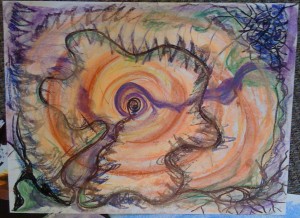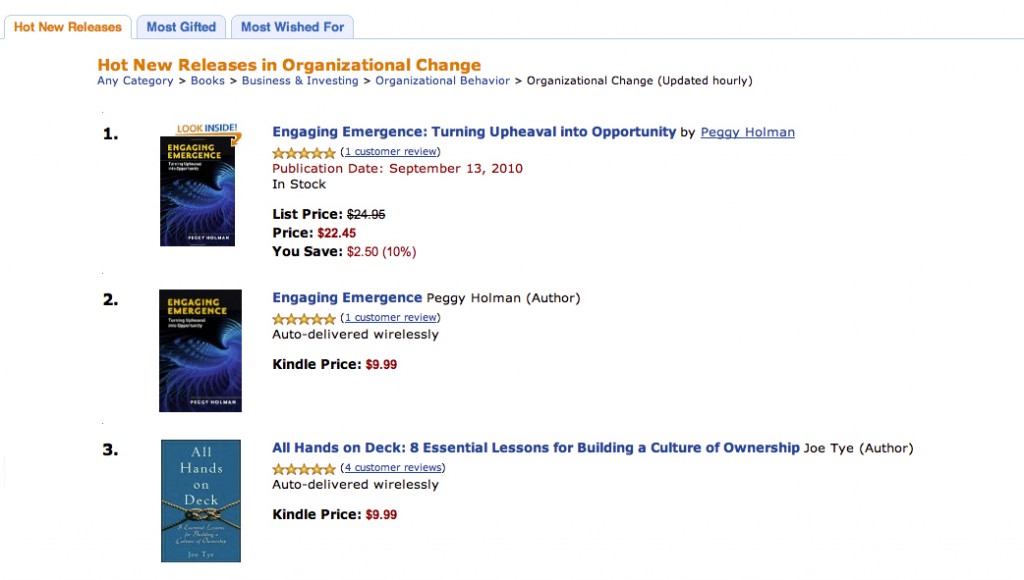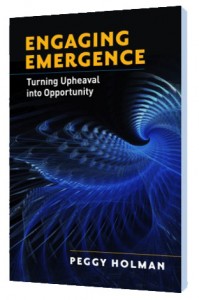I did an interview on September 7th for the Community Learning Exchange –CLExchangeonair with Cheryl Fields on Blog Talk Radio.

Below are some of the questions Cheryl asked and a summary of my responses:
- Everyone is familiar with chaos, but I’d like to begin by describing what you mean by emergence for our listeners. What is it and how does it show up in our lives and in our work?
It’s a word to describe something we all experience, usually at the best and worst times. The simplest definition I’ve found is order arising from chaos. So we experience emergence in emergencies – something happens and people self-organize to handle the situation.
Then there are the times when we give ourselves over to the larger forces and follow our noses and something magical happens. Think of great jazz or team sports at their best.
- Early in the book you tell the story of how your own perspective on engaging emergence began. Tell us about that experience?
In the 1990’s I managed software projects. I was excellent at figuring out the steps that needed to be done and then making those steps happen — planning the work and then working the plan.
As the projects got bigger and more complex, I ran into a one that involved enough people with different opinions that that old approach just didn’t cut it.
Fortunately, I had the opportunity to work with someone who understood how to work in a different way. Once I experienced it, I had to learn more.
- It strikes me that one intention of your book is to provide people with tools for overcoming the emotions of fear, panic and retreat that instinctively emerge when we’re confronted with upheaval. These emotions are a natural response to crisis, but how do they get in our way as we’re trying to adjust to these disturbances?
I love your question because it gives me a chance to both answer it and demonstrate one of the simplest ways of doing what you’re asking about.
Change IS often an emotional roller coaster. Just acknowledging that can take some of the angst out of change. We dig ourselves deeper in because of where we focus our attention. In other words, when we focus on how our emotional state gets in our way, we reinforce it and it gets more in our way!
Questions can be powerful influencers of the stories that shape our attention and action. So, for example, what if we turned your question around and asked,
How could the powerful emotions we naturally experience support us as we face disturbances?
What do you notice when the question is asked that way?
Great questions do three things: they provide focus which brings some sense of order. They attract those who care. And they invite others to join in.
- In your preface you talk about achieving breakthrough solutions rather than compromises that no one is happy with. We’ve seen a lot of the latter on Capitol Hill in recent years. How does engaging emergence help us to arrive at innovative solutions?
Rather than trying to force an answer, engaging emergence has us do almost the opposite: it suggests we make room for the unknown. After all, if we had the answers, we’d already have pursued them. So instead of pursuing familiar paths, the idea is to give something new a go. How do we do that in a way that something useful arises rather than devolving into chaos?
Create conditions for something useful to happen through:
Bringing clarity of purpose by asking disruptive questions compassionately. For example, given the state of our schools, what’s possible to do on behalf of the children?
Inviting the diverse system of people who care about the question.
Welcoming who and what shows up, recognizing that even if it seems disruptive, it likely contains important kernels of truth that need to be discovered and incorporated into the ultimate solutions.
- What are the five principles of emergence?
I have identified five principles based on what science teaches us about emergence. They are helpful both when designing activities that engage a diverse group in addressing a complex issue or when operating in a challenging situation:
- Welcome disturbance
- Pioneer
- Encourage random encounters
- Seek meaning
- Simplify




